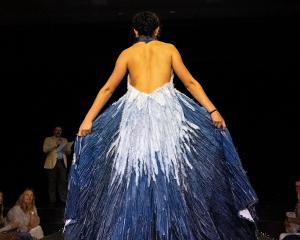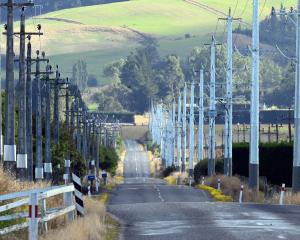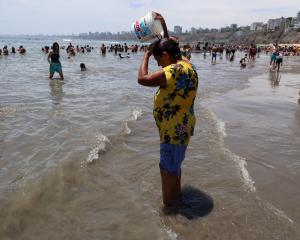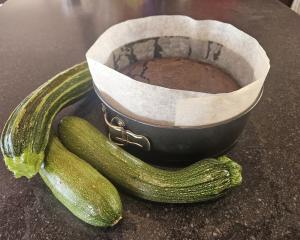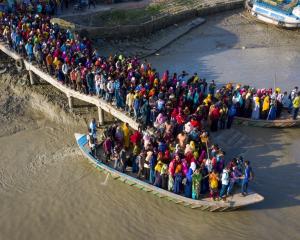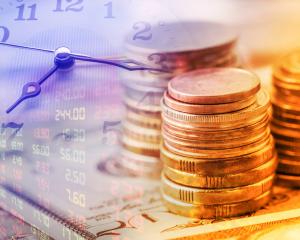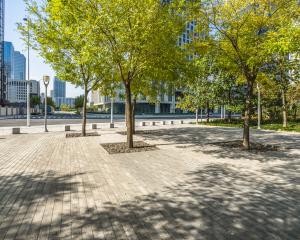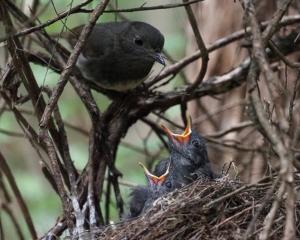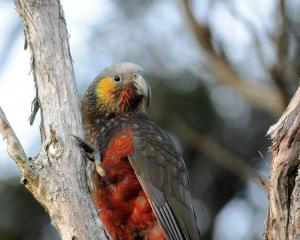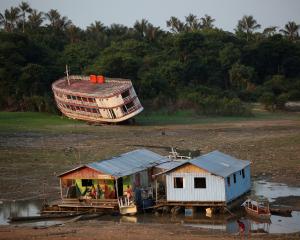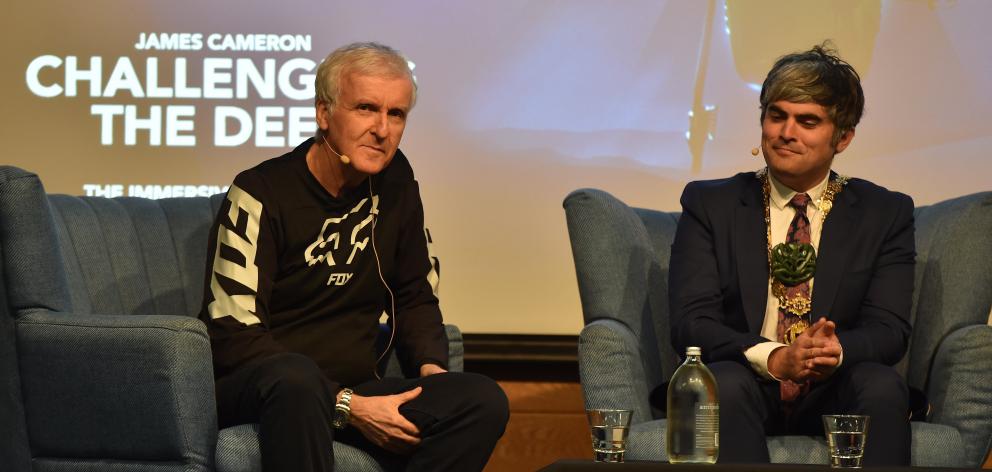
Q Climate change is an emotional issue, isn’t it?
It’s a deeply emotional issue if we care about our children, or if we are children facing an anxious future. As I think we all know, unless we are in really active denial, we’re facing probably the biggest existential challenge to human civilisation. And we are collectively responsible for it, and we are collectively responsible for the solutions. As a father of five, I take it as my sacred responsibility to do as much as I can. I can only hope that there are enough likeminded people out there who populate the major corporations that right now seem to be working largely to exert pressure on national governments to not change the status quo. Because we’re not changing the way we do business, the way we consume, the way we eat, the way we consume energy, the way we produce energy. We’re not changing any of those things fast enough to really make a big difference in the long run.
Q As a director who is a synonym for ambition, how important is ambition in framing this?
I think you have to set yourself a goal and have the will to do it. And the first step for that is for us as a community and as a society to be in agreement that this is something that we believe has to happen, and then we’ll find the will to make the changes that we have to make.
I’m going to bring up an unpopular subject which is that the elephant in the room in all of this in New Zealand is the cow. Or a sheep or a chicken - but mostly, cows. Fifty percent of the greenhouse forcing created here is from the animal agriculture sector.
The global average for animal agriculture contributing to climate change is about 14 or 15%. Here it’s 50%. And it’s a sector that represents 4% of the GDP. So there is a huge imbalance there.
It’s going to have to change and I think we all know it, but the farming community is highly resistant to it. And I am of the farming community. I was raised on a farm, I’m a farmer here — I don’t have cows — but we’re going to have to change what we grow and how we consume and how we eat. And this is the fundamental thing.
I also find it very empowering, by the way, because regardless of who your elected leaders are ... you can take action as an individual. And I think one of the biggest things is, it goes back to that will-power, that ability to execute.
I call it the missing middle. We’ve gone directly from denial — ‘‘it’s too far away in time, it’s happening to other people, other places, it doesn’t matter to me’’. We’ve missed the middle, the battle where you actually take on the challenge and do something, and gone right to ‘‘we’re all screwed and we’re all gonna die, let’s just party!’’. And we’ve sort of skipped the middle step. There is a tendency in human psychology to skip that middle step when really the battle is just getting started now. And I like challenges. Let’s fix this!
Q People from the other side of that argument will say that New Zealand farmers are some of the most efficient in the world. And there is an argument, as you know, that if they are to step out of this sector, inefficiency could increase.
Well, first of all I would take exception to that argument. I’ve heard that argument, but methane is one of the biggest things that we have to wrangle in this country. And the irony of it is that the concentrated feedlot operations in the US and in Europe are actually more efficient for methane production than free-range grazing by a factor of two. So even though there is a lot of good science here in the way that dairy is done and the way that beef is done, people are really sticking their heads in the sand.
I want to really emphasise how sympathetic I am to farmers. I have farms in Canada, I have a farm here. The purpose of those farms is to figure out how to do it better. To do less inputs, right? All farmers want to do is to make some money off their land so they can keep their family farm, keep their pride. Pride of place for a lot of Kiwi farmers is generational; they inherited the land and they believe in it.
Q And that’s a really important part of the national consciousness, isn’t it? This idea of kaitiakitanga, ultra long-term guardianship.
Yes, but ultra long-term guardianship requires understanding what you are doing now and its impact on future generations. And the jury is not out on this. The rivers are being polluted. You have eutrophication caused by run-off of nitrate phospate fertilisers.
We need more efficient agronomy to hold on to that nutrient because that’s where your margin is as a farmer. That’s where your profitability is. If you’re spending hundreds of thousands, or millions of dollars per year — depending on the scale of your operation — on nitrate and phosphate top-dressing and half of it is running off, you need to be practising organic methods to retain it and retain moisture.
Q From a storyteller point of view, how important is it to frame this [climate change] in such a way that hope is kept alive?
It’s important to have hope but it’s also important to understand the scope of the problem because you can’t really deal with it until you understand the scope of the problem and the steps that are necessary. It’s that fine balance but I think whether you’re pessimistic or an optimistic doesn’t really matter. The situation is what it is.
What’s important is the average person needs something to do. They need to be given a course of action. I think it’s hopelessness that is the greater psychological force at work here — free-floating anxiety which tends to be paralysing. But if you give somebody something to do ... If there is a proximal emergency — let’s call it a flood — you hand somebody a sandbag and say ‘‘go put that over there, you’re doing good’’. That’s what we need. We need the things that we know we can do that are going to make a difference and are good.

Q The words of someone like Greta Thunberg who will stand up at Davos in front of the amassed leaders and say ‘‘I don’t want your hope. I want you to panic. The house is on fire’’. I don’t know what you think about that sort of rhetoric?
She’s our Martin Luther King. He had something to say in the 1960s about racial equality and he had to be a black person to say it. She’s a child. It has to be a child that says it because she’s speaking for the future. She was the necessary voice and the necessary catalyst at the right time. Of course it’s been taken up because it’s the right thing. Nobody creates a movement. They can only catalyse it into a broader thing.
Q What is the likelihood of the implementation of [economic] levers given that they may end up being political decisions? Politicians want to get re-elected - that is not a popular platform.
What’s the likelihood based on what I’ve seen? Zero! But based on what is possible with rapid change when you see a movement that began within the last few months and we’ve seen it sweeping around the world. Humans are capable of change; it’s what we do best.
We can adapt to a future of our own creation, but we have to know what’s happening and what’s required to do that adaptation. This goes back to my individual empowerment, and it goes to adaptation. My position on not eating animals is not based on ethics, it’s based on the environmental impact of it. I would submit that even if it was less healthy to not eat animals and to just eat plants - we’re going to have to do it anyway. But the beauty of it is that it’s not, it’s the most healthy way to live and it’s the best way to keep the planet healthy. But people don’t want to hear it. And you talk about piety — there’s nobody more pious than a vegan!
My favourite vegan joke: ‘‘How many vegans does it take to screw in a lightbulb? Doesn’t matter, we’re better than you!’’.
It just sums it up! When my wife and I changed for environmental reasons almost eight years ago — we were born again, we just had to tell everybody the good news. And we became obnoxious. It was no fun to be our friend for about two years! But once you know that, you realise you have to sneak up on it a little more circumspectly because you are really challenging people in a place where they have grown up that way. It’s what we know, it’s what our culture has represented to us. But it’s wrong. People are not very good about being wrong.
Q How much can we absorb, cope with, deal with? The question of what we eat - it hits us where we live, doesn’t it?
There's an interesting thing my wife [Suzy Amis Cameron] prepared for a book that she wrote. It was a Venn diagram and she took all the major ecological crises of the world from biodiversity, deforestation, ocean dead zones, waterway pollution and so on. You just go around, and where they all overlap is at animal agriculture, agriculture in general, but mostly animal agriculture. It turns out to be a magic-wand solution to just stop eating animals.
If the developing world comes up to the consumption levels of New Zealand and the United States, which are very similar when it comes to animal agriculture, we would need somewhere on the order of four to six planet Earths to support our current population, eventually. And the eventually is not all that long.
If we all ate like somebody in India right now, a poor person in India who eats mostly plants, mostly lentils, then we could support a population on this planet of 15 billion people. There is a huge social injustice factor. It’s like ‘‘we can live this way — but you can’t and you never can’’. Or we have to change and meet in the middle some place so that everyone can have a reasonable lifestyle.
Q On a question of collective responsibility, I listened to a commentator last weekend at an event in Wellington say ‘‘Nobody cares that New Zealand passed a zero carbon Bill. It’s a compromise. It’s a tiny country at the bottom of the world. It doesn’t matter.’’ What do you think?
I think the world does pay attention to New Zealand disproportionate to its population and its GDP. From Edmund Hillary to the All Blacks to the racing boats. I think people look to New Zealand as both a forward-thinking green nation and a nation of independent and rational people. I certainly think of this as one of the least insane places on an otherwise delusional planet.


